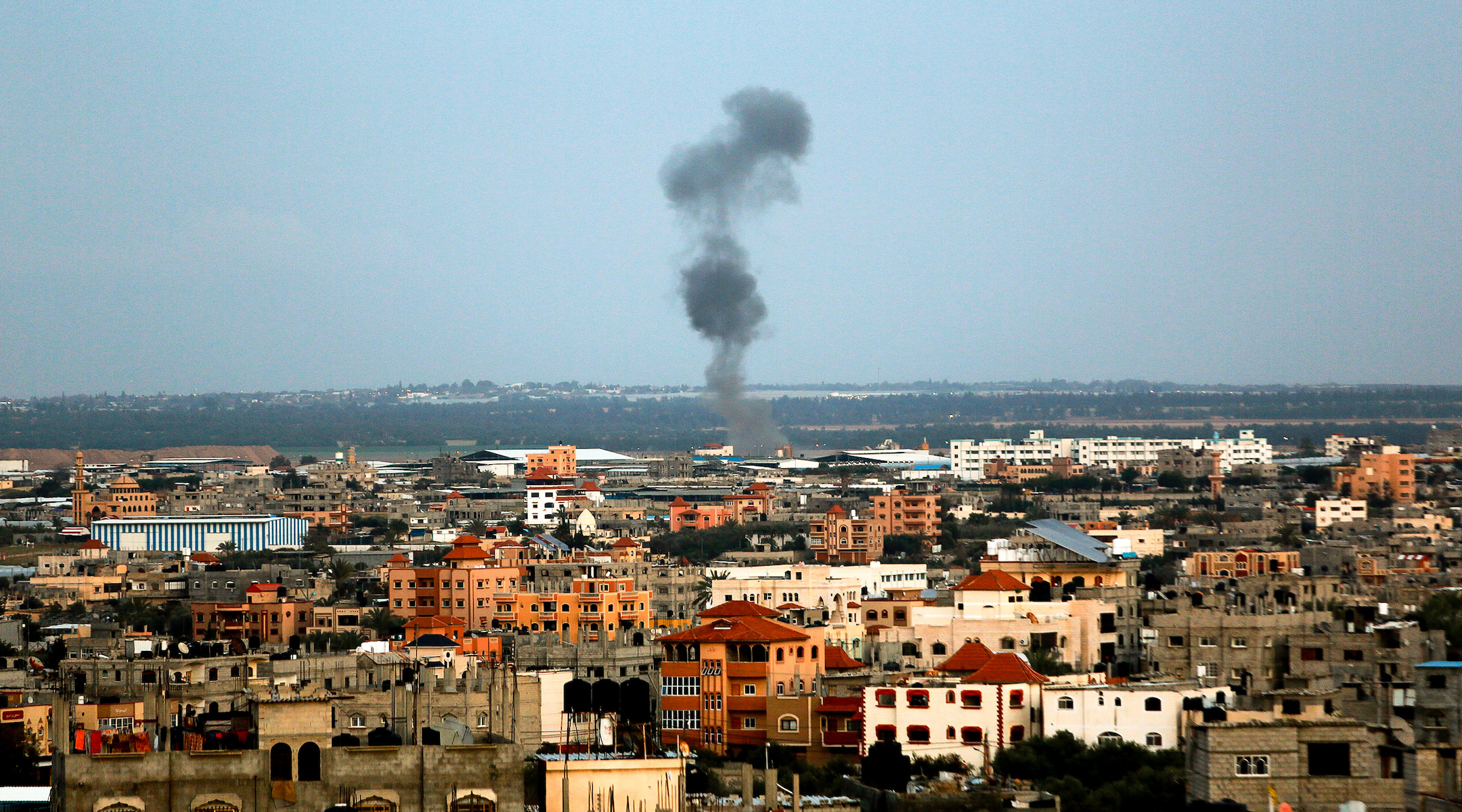JERUSALEM (JTA) — More than 60 rockets were launched overnight into southern Israel from the Gaza Strip even as Hamas said it had accepted a cease-fire agreement.
Egypt brokered the cease-fire, which was to take effect at 10 p.m. Monday, but rockets targeting civilian areas continued to fall until after 3 a.m. Tuesday. Several were intercepted by the Iron Dome missile defense system and others landed in open areas.
There were no reported injuries to Israelis. A home in Sderot was damaged when an unexploded rocket landed on it.
Israeli jets responded throughout the night, striking Hamas and Palestinian Islamic Jihad military compounds in northern Gaza, among others. The Israel Defense Forces announced that it destroyed the office of Hamas chief Ismail Haniyeh. At least three Palestinians were reported injured in the bombings.
The violence came after a rocket fired from Gaza early Monday morning scored a direct hit on a home in central Israel, injuring 7, leading to Israeli retaliatory attacks about 12 hours later.
Prime Minister Benjamin Netanyahu, who also serves as defense minister, returned to Israel from Washington, D.C., late Tuesday morning. He went directly from the airport to a security briefing at the IDF headquarters in Tel Aviv.
Before boarding his plane in Washington, Netanyahu said in a statement that “We have responded very, very forcefully. Hamas needs to know that we will not hesitate to go in and take all necessary steps – regardless of anything, any date, other than Israel’s security needs.” The any date is an apparent reference to Israel’s national elections scheduled for April 9.
Haaretz quoted Palestinian sources in Gaza as saying that Israel’s condition for a cease-fire is an end to border fence violence, including launching incendiary balloons and the planned Friday protest marking the one-year anniversary of the March of Return.






